Sales Team
Project quotes, partnerships, implementation
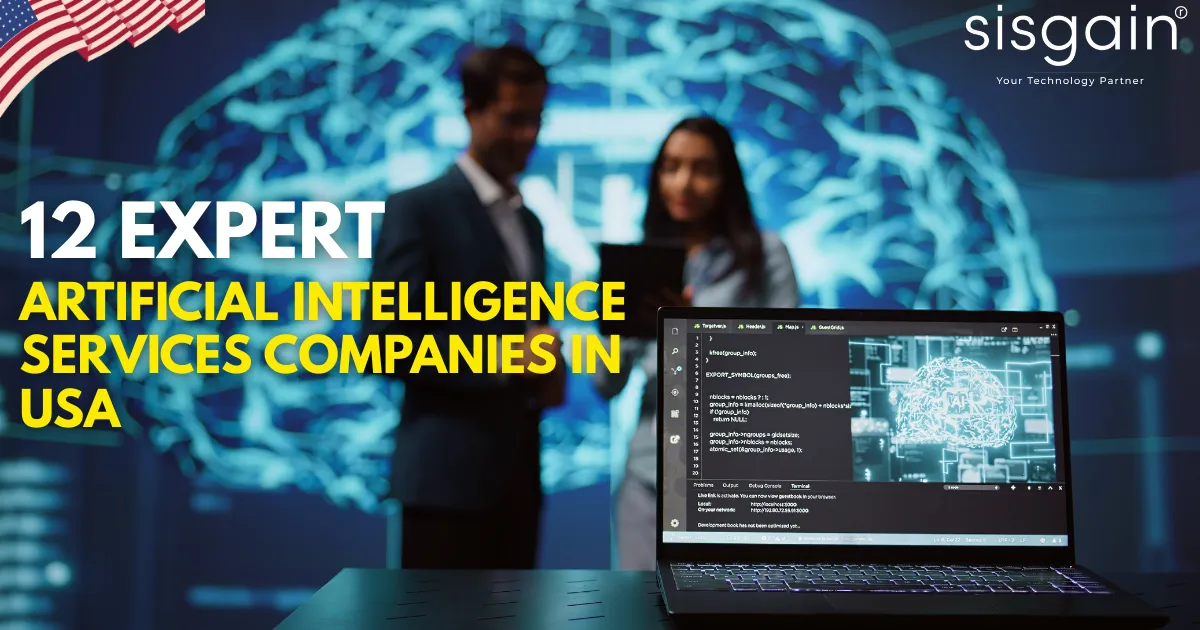
Artificial Intelligence is no longer a futuristic concept—it’s driving innovation, efficiency, and transformation right in companies across the U.S. From healthcare to finance, from customer service bots to predictive analytics, demand for Artificial Intelligence Services Companies has never been higher. If you’re looking to pick a partner that can deliver real results with AI, you want to know who the top players are, what to look for, and which companies are doing it best.
This article covers 12 Expert Artificial Intelligence Services Companies in USA—why they stand out, what they offer, and how they compare. We’ll also cover how AI software development companies differ, what AI developers bring to the table, and the growing impact of AI in sectors like healthcare. If you're evaluating partners, this will help you make informed decisions.
Many businesses ask: Why go with a specialized Artificial Intelligence Services Company instead of built-in teams or generic software vendors? Here are several reasons:
Domain Expertise & Deep Skill Sets: These companies often have teams of AI developers, data scientists, ML engineers, and research staff who specialize in designing models, training them, deploying them, and maintaining them. They are up to date on the latest frameworks (PyTorch, TensorFlow, etc.), model architectures, scaling, and data engineering.
Faster Time-to-Value: A company already experienced in AI software development can jump into your problem faster—evaluating your data, choosing pipelines, and delivering proof of concept, pilot, or MVP in shorter time. Less learning curve, more delivery.
Scalability & Infrastructure: Many AI services companies provide infrastructure (cloud, GPU/TPU usage, scalable architectures) and know how to handle large data volumes, model latency, deployment, versioning etc.
Best Practices & Risk Management: AI comes with risks—bias, privacy, data quality issues, regulation (especially in health). Expert service companies know how to build governance, explainability, monitoring, ethical AI etc.
Focus on Use Cases & ROI: They often have existing case studies across industries, so they can show concrete results: cost savings, increased revenue, reduced downtime, improved customer satisfaction.
Because of that, when you’re looking to hire AI software development companies, you’ll typically find that these specialized Artificial Intelligence Services Companies offer more value, more reliable results, and fewer surprises than trying to build everything in-house from scratch (unless you already have mature AI developers and infrastructure).
To pick among the 12 (or any) Artificial Intelligence Services Companies, use these criteria. Each helps ensure you’re hiring a high-quality partner.
| Criteria | What to Look for / Why It Matters |
|---|---|
| Industry Expertise | Does the company have a track record in your sector (healthcare, finance, retail, logistics)? For example, AI in healthcare requires regulatory compliance, understanding of privacy (e.g. HIPAA), clinical workflows. |
| Case Studies & Proven Results | Real client stories, measurable outcomes (savings, performance improvement, accuracy, speed). Avoid vague promises. |
| Talent & Team Composition | Experienced AI developers, data engineers, ML ops, UX/design for AI products etc. |
| Infrastructure & Technology Stack | Scalable compute, data management, ability to use cloud/GPU resources, model monitoring, security. |
| Governance, Ethics & Trust | AI bias, data privacy, model interpretability, compliance. Especially important in regulated fields. |
| Customization & Flexibility | Pre-built solutions are good, but good companies can tailor to your needs. Use of platforms, agents (like what Accenture is doing with its AI Refinery) matters. |
| Support & Maintenance | AI models degrade, need updates. onboarding, support, versioning, scaling—these matter. |
Also, as you evaluate, watch for keywords: “AI developers” in team bios, case studies, or job roles; “AI software development companies” when referring to capabilities; “Agentforce” or agent-based AI work if relevant in your industry.
Here are 12 companies that are currently among the best in the U.S. in AI services—whether building custom models, delivering enterprise AI, or transforming industries. For each, I cover their strengths, select use cases, what makes them stand out, and relevant lessons.

Why they stand out
Accenture is a giant in consulting and professional services, and in recent years has doubled down on AI, especially generative AI, AI agents, and transformation. Their platform “Solutions.AI” offers scalable AI solutions across customer engagement, marketing, pricing, workforce/talent etc.
They’ve launched or expanded tools like AI Refinery, which includes an “agent builder”—letting business users build/customize AI agents without needing to code, supported by built-in governance. Accenture Newsroom
Notable capabilities
Ability to deliver end-to-end AI services: strategy → engineering → deployment → maintenance.
Strong partnerships (e.g. with NVIDIA) to provide advanced model infrastructure and tools.
Growth mindset: They’re building generative AI studios and refining agentic AI solutions across industries.
Relevance for you
If your organization needs a partner who can scale, handle compliance, integrate across many functions, and help you quickly adopt generative/agent AI, Accenture is a top contender. They show what mature Artificial Intelligence Services Companies look like.
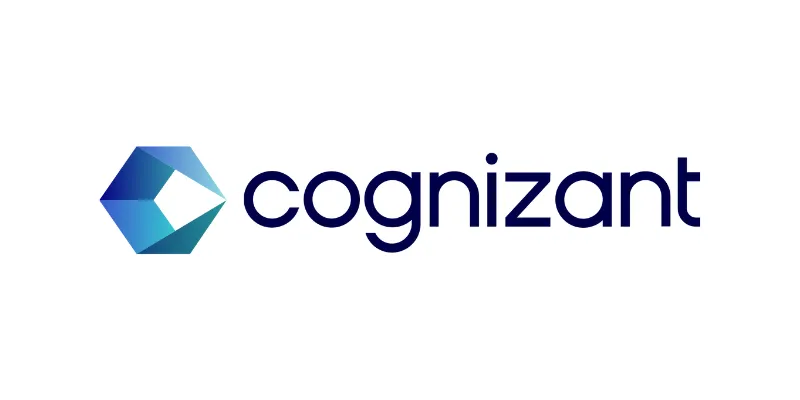
Why they stand out
Cognizant is a leading IT services and consulting firm with a strong focus on AI and generative AI services. Their “Generative AI” offerings include data and AI services with domain expertise, consulting, and delivery.
They emphasize responsible AI (governance, risk), strong domain use cases (manufacturing, pharmaceuticals, insurance, etc.) and measurable impact (cost savings, accuracy improvements). www.cognizant.com
Notable capabilities
Building conversational agents, chatbots, AI assistants in enterprise settings.
Using AI developers to handle complex tasks like processing unstructured text, speech, and summarization.
Integration with digital transformation programs.
Relevance for you
If you want AI software development companies with strong consulting and industry-specific experience, Cognizant is worth considering, especially if your use case involves generative AI, automation in operations, or customer engagement.
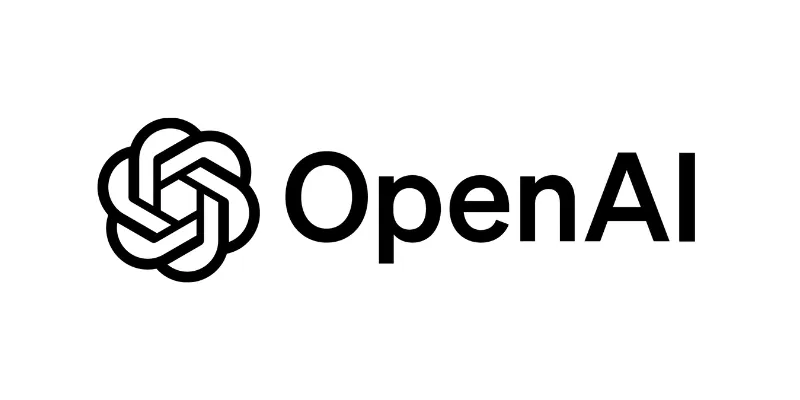
Why they stand out
OpenAI is probably best known for ChatGPT, GPT models, etc., but increasingly they are positioning themselves as a partner for enterprises too. Their ChatGPT Enterprise product offers features for large organizations, including enterprise-grade security, support, connectors to internal data, etc. OpenAI
They have also stepped into high-end consulting / deployment services (model customization, data handling) for large clients.
Notable capabilities
Cutting-edge model access (latest versions) and early access to features.
Tools for different domains: finance, operations, healthcare. Their “Solutions” page lists healthcare among industries where they offer enterprise-ready AI solutions.
Solid security / privacy practices.
Relevance for you
If you want a partner offering state-of-the-art AI models, fast iteration, modern tools, and hands-on custom work, OpenAI is a top pick. As a company of AI developers, their work tends to be more “model-centric,” so consider how much you need end-to-end integration and support.
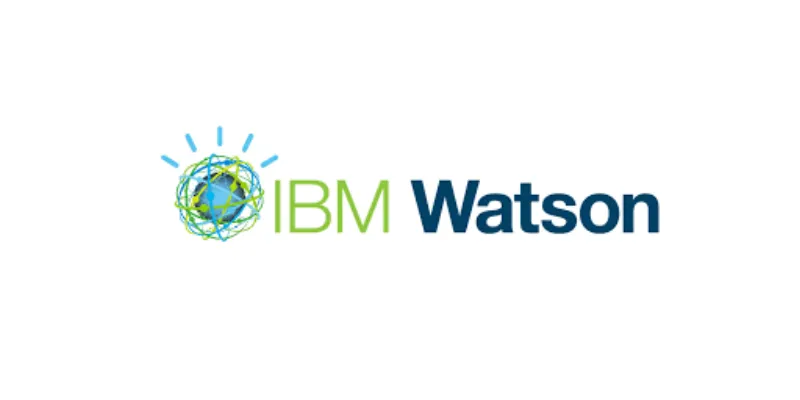
Why they stand out
IBM has long been a leader in enterprise AI, especially around AI + cloud, analytics, and in regulated industries. Watson and IBM’s AI Cloud offerings are often used by companies in healthcare, finance, insurance, and other fields where data governance, reliability, and explainability are critical.
Notable capabilities
Clinical applications, diagnostic tools, imaging, etc.
Strong emphasis on explainable AI, trustworthy AI, and regulatory compliance.
Hybrid cloud support: many companies don’t want everything in public cloud; IBM supports that mixed environment.
Relevance for you
If your use case is in healthcare or another regulated domain, or you're concerned about data privacy, regulatory compliance, etc., a company like IBM is key to check. Their depth in AI developers and enterprise service teams is strong.

Why they stand out
Microsoft provides a broad suite of AI tools and platforms via Azure, includes pre-built services, access to OpenAI models, and partner network. They combine infrastructure (cloud, compute), model / tool support, and services.
Notable capabilities
Integration with tools many companies already use (Office, Dynamics, Power Platform).
Enterprise AI offerings, security, compliance, responsible AI tools.
Strong partner ecosystem; many AI services companies partner with Microsoft or are built on Azure.
Relevance for you
If you want scalability, global reach, and infrastructure robustness, this is attractive. Also useful if your company already uses Microsoft tooling heavily; less friction.
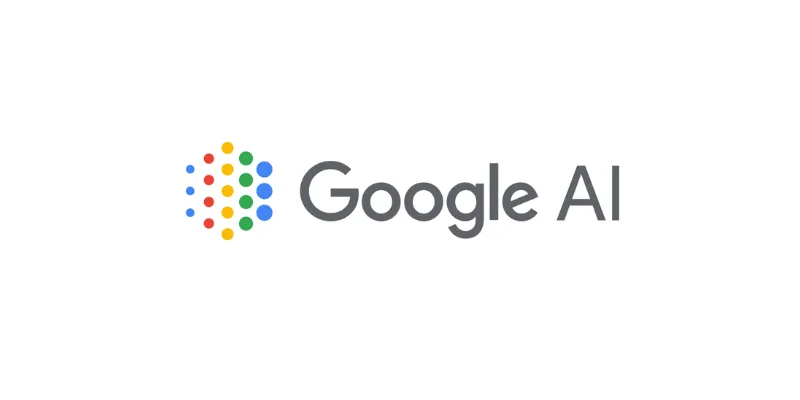
Why they stand out
Google is another major provider of infrastructure + AI models + tools. Vertex AI, AI-driven analytics, specializing tools for large-scale ML pipelines, etc. Their research division also pushes the frontier.
Notable capabilities
Big data / big ML / model training infrastructure.
Strong in healthcare (AI imaging, diagnostics), healthcare datasets, etc.
Tools to help AI developers deploy models in production, monitoring, etc.
Relevance for you
If you need cloud-scale training, state-of-the-art tools, leveraging large databases/data pipelines, Google is hard to beat. Also good if you care about research, innovation, bleeding-edge capabilities.

Why they stand out
While NVIDIA is best known for hardware (GPUs), they now also offer software stacks, frameworks, platforms (like Clara for healthcare, etc.), making them a key partner for many Artificial Intelligence Services Companies. Their tools make it possible for AI developers to train large models, deploy them, etc.
Notable capabilities
Accelerating AI model training & inference.
Specific solutions in imaging, healthcare, genomics.
Big ecosystem: hardware, software, partnership with cloud providers.
Relevance for you
If your work involves heavy ML workloads (imaging, video, large model training, etc.), you’ll want a partner who knows NVIDIA’s stack or works with them—or choose NVIDIA-friendly vendors. Cost of compute and efficiency matters.

Why they stand out
QuantumBlack is McKinsey’s AI / advanced analytics / data science arm. They combine deep strategic consulting with technical AI execution. That means not only helping define AI strategy, but also building prototypes, models, and integrating them. McKinsey & Company
Notable capabilities
Strong in transformation, change management, aligning AI with organizational goals.
Use cases across industries (telecom, manufacturing, energy, etc.).
Emphasis on data pipelines, ML ops, deployment.
Relevance for you
If you want high trust, strategy + execution, and someone who can help you navigate change (not just build models but help with adoption, integration), this kind of company is ideal.
These companies may not have the same brand size as Accenture or IBM, but they are often more agile, more willing to co-innovate, and can offer very strong services. Examples drawn from Clutch listings:
BlueLabel (NYC): Strong ability to deliver in AI Development, good client feedback. Clutch
NineTwoThree AI Studio (Danvers, MA): High specialization, good focus.
HatchWorks AI (Atlanta region): Frequent case studies, relatively lean but capable.
These kinds of companies can be excellent if your use case is well defined and you want more hands-on, attentive service.
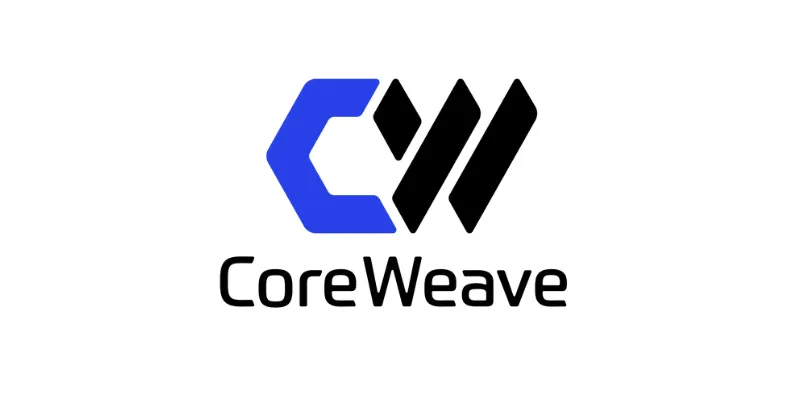
Why they stand out
CoreWeave is more infrastructure + cloud-for-AI focused: they provide GPU infrastructure, data centers, supercomputing support, etc. If your AI work is compute intensive (deep learning, image/video, large-scale models), having infrastructure partners or service providers able to deploy on CoreWeave makes a difference. Wikipedia
Notable capabilities
High performance GPU cloud computing.
Hardware + software stack support, efficient pipelines, provisioning.
Known for being fast, focused on AI compute needs.
Relevance for you
Especially relevant if your AI developers need dedicated GPU capacity, fast infrastructure, model training pipelines. If you’ll be hosting large models, large data, or want lower latency, this kind of company plays a key role.
Why they stand out
Uniphore focuses on conversational automation—voice, speech analytics, virtual assistants. For businesses wanting to work in customer service, voice interfaces, contact centers, etc., these are key competencies.
Notable capabilities
Voice biometrics, virtual assistants, real-time speech & conversation analytics.
High usage volume (many agents, many interactions) so proven scale.
International clientele, but strong U.S. presence.
Relevance for you
If your requirement is for chatbots, voice bots, customer-facing virtual agents, or anything where conversation or audio/speech matter, Uniphore is worth evaluating.
Since AI in healthcare is a major domain, here are two organizations or startups doing interesting work (some of which overlap with larger companies). Though they might not always be full-scale services firms, they illustrate what’s possible and who might be doing specialized, cutting-edge work.
K Health (NY, USA) – Provides virtual primary care using clinical AI, AI-driven symptom checking, partnering with institutions. Wikipedia
Spikewell (Cambridge, MA) – A company that builds AI/automation/IT tools for hospitals and healthcare systems to optimize workflows, reduce admin burdens, etc.
These organizations often have smaller scale or focus, but deep domain specialization, which matters a lot in healthcare given regulatory, safety, clinical accuracy, patient privacy needs.
Artificial Intelligence in Healthcare deserves its own spotlight because it has specific challenges and high stakes—and those companies who succeed here often show the strongest E-E-A-T credentials.
Regulatory & privacy demands: Healthcare data is sensitive. Partners need experience with HIPAA, FDA approvals, compliance, data security, etc.
Clinical accuracy & validation: It’s not enough that a model works on ideal data. It must be validated, tested in real settings, deal with bias, edge cases, interpretability.
Examples & trends:
Diagnostic imaging (radiology, pathology) AI tools are improving detection of disease, often earlier.
Virtual care / telehealth / AI-assisted triage help reduce workloads.
Predictive analytics: predicting readmissions, patient outcomes.
AI to automate routine tasks: documentation, transcription, coding.
If your business is in or touches healthcare, choosing Artificial Intelligence Services Companies who already have strong healthcare AI cases (like K Health, Spikewell, or IBM or NVIDIA with health tool stacks) is a big advantage.
Understanding where the market is going helps you pick companies that are future-proof.
Agentic AI & AI Agents
Companies (like Accenture) are building and offering agent builders—tools that let non-developer users compose or customize “AI agents.” This shifts the power from only AI developers to business users. Companies using or integrating with tools like Agentforce (if applicable) will be relevant.
Generative AI Everywhere
From content creation to design, from marketing to R&D, generative AI is becoming standard part of services. Models and platforms are being tuned to specific domains (finance, healthcare, legal, etc.).
Responsible, Ethical, Explainable AI
As adoption increases, so do concerns: bias, fairness, transparency. US users, regulators, customers expect ethical AI. Companies with strong governance, certification, auditability will be more trusted.
Hybrid & Edge Deployment
Not everything stays in centralized cloud. Edge computing, on-device ML, hybrid cloud models are increasingly used—for latency, privacy, bandwidth reasons.
AI Infrastructure & Efficiency
Compute cost matters. Efficient model architectures, infrastructure providers (e.g. CoreWeave), model compression, etc., are gaining importance.
(If SISGAIN is your company or a company you want to feature, this section would show how you stack up.)
Custom AI Solutions: SISGAIN (hypothetically) provides custom software development, with AI developers trained in computer vision, NLP, predictive analytics, etc.
Domain Focus: If you have a sector (e.g. healthcare, finance), show your previous success, certifications, data privacy compliance.
Build vs Buy: Many companies use pre-built AI tools; SISGAIN could differentiate by offering customized pipelines, fine-tuning, per-client waterfall, etc.
Agentforce / AI Agents: If SISGAIN is using or integrating agent tech, emphasizing that is strong. Also, highlight your infrastructure partnerships or usage of efficient compute.
Support & Lifecycles: Model monitoring, versioning, retraining, handling drift—these often get neglected by less experienced providers.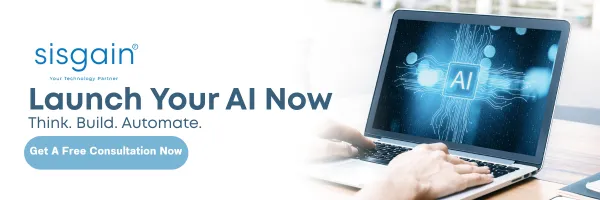
Artificial Intelligence Services Companies are now critical players in helping U.S. businesses stay competitive. Whether you need to automate customer interactions, build predictive models, integrate AI in healthcare, or deploy agentic AI, picking a company with proven expertise, strong AI developers, reliable infrastructure, and ethical practice is essential.
If you want a trusted partner, look for companies that combine domain experience (especially in your sector), solid case studies, modern AI infrastructure, and long-term support. If you’d like, I can help you evaluate specific providers or compare cost vs value given your use case.
Considering SISGAIN? Explore how SISGAIN, as an AI software development company, delivers custom, scalable, and industry-specialized solutions, especially in challenging domains like healthcare. Let’s connect to see how SISGAIN can align with your AI goals.
Project quotes, partnerships, implementation
Open roles, referrals, campus hiring